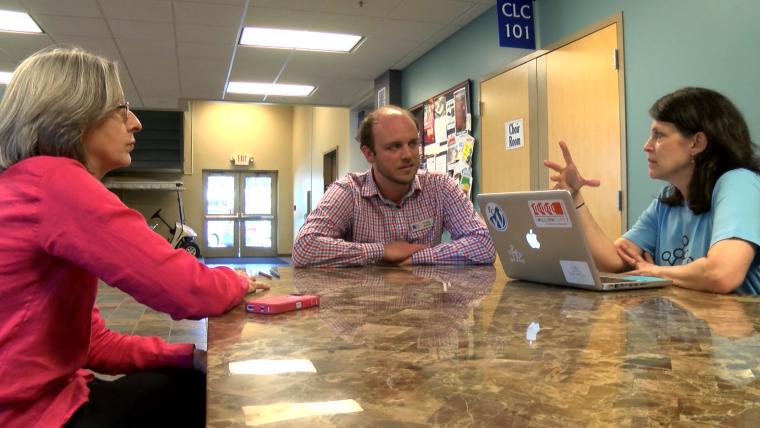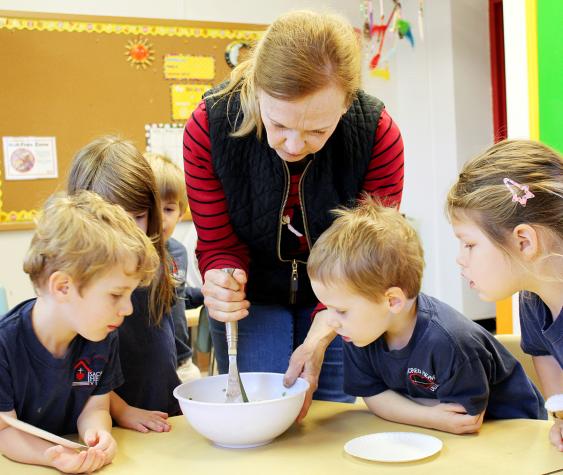
Men’s health
It has been well-known for some time now that women enjoy longer life spans than men all around the world. Many studies have examined why and whether men can do anything about it.
Strength training for older adults
As we age, many of us start to worry about our ability to perform everyday tasks like putting groceries away, mowing the yard or sweeping the floor. Muscle mass diminishes with age, contributing to such concerns.
What you need to know about sunscreen
LAMAR, Mo. — Selecting the right sunscreen involves more than picking the product with highest SPF number, notes a University of Missouri Extension nutrition and health education specialist.“Many of us use sunscreen, but the options can be confusing,” said Tammy Roberts.
Stroke: Time lost is brain lost
Learn to recognize stroke signs quickly and act fast to prevent brain damage and long-term disability.
Reduce risks to prevent falls
According to the Centers for Disease Control and Prevention, falls are the leading cause of injury and death in adults age 65 and older.
Grilling meat may increase cancer risks
INDEPENDENCE, Mo. – Grilling meat over open flame can produce tasty meals. But it can also produce harmful chemicals, especially if the temperature is above 300 degrees Fahrenheit. These chemicals are known as heterocyclic amines (HCAs) and polycyclic aromatic hydrocarbons (PAHs), says Lydia Kaume, a nutrition and health education specialist for University of Missouri Extension. Broiling, charbroiling and pan frying can also produce…
Dairy Grazing Apprenticeship offers opportunities
Dairy Grazing Apprenticeship offers a paid, two-year training program for future dairy farmers, providing hands-on experience in managed grazing systems.
Prevent falls and maintain independence
Each year more than one-third of adults 65 years and older fall. Of these falls, 20 to 30 percent result in injuries that reduce mobility.
Winter power outages can lead to generator concerns
COLUMBIA, Mo. – Severe winter weather can bring widespread power outages, which means many Missouri families might be firing up their generators. University of Missouri Extension emergency management specialist Eric Evans urges people to use common sense when using a generator.
Do you know your cholesterol numbers?
It is important to be aware of cholesterol numbers because high cholesterol is one of the major controllable risk factors for coronary heart disease, heart attack and stroke. There’s no better time than right now to know your numbers.When you get the results of your cholesterol blood test you should know your total cholesterol, HDL cholesterol and LDL cholesterol. The desirable total cholesterol level is 200 mg/dL or below.
Belly fat is linked to health risks
People with a lot of belly fat are at a higher risk for health problems than people who carry fat in other areas. Some of those health problems include diabetes, some types of cancer, high blood pressure, sleep apnea, heart disease and dementia.
Waist size can be indicator of prediabetes
Measuring waist size can reveal diabetes risk more accurately than BMI. Larger waistlines raise chances of insulin resistance and prediabetes.
Live like your life depends on it
You can improve your health and prevent or lessen the effects of chronic diseases through diet and exercise. By investing a little time in your health, you can live a longer, healthier life.
Walking is the best medicine
Ancient Greek physician Hippocrates (known as the father of Western medicine) once said, “Walking is man’s best medicine.” What a relatively simple and inexpensive “pill to take” to make such a big impact on maintaining and improving our health.
Small steps to heart health
February is National Heart Month, so it’s a great time to make a change for better heart health. Heart disease is the leading cause of death in the United States, with stroke coming in fifth, according to the American Heart Association. Both of these conditions result when blood flow is reduced or stopped altogether. But there are steps people can take to reduce the risk.
Healthy habits help you live longer
Adopt healthy habits like staying active, eating well, and connecting socially to boost longevity and overall well-being.
The gift of time
“The best thing parents can spend on their children is time, not money.” — Anonymous
Quality heifers inspire strong bids; average price $2,427 at Fruitland
High-quality heifers averaged $2,427 at the Fruitland sale, with top genetics, AI-bred calves, and buyers competing for strong bids.
Balancing the parent role with relationship needs
It’s challenging for new parents to manage their new parenting role and their couple relationship. The joy of having a baby leads to a transition for couples that can strain even the best relationships.
Happy relationships good for health
Why do healthy relationships matter? Research has shown that there are physical health benefits from healthy relationships and marriages. For instance, married people have longer life expectancies than single people, especially married men.
Balancing responsibilities
Do you ever feel as if you are trying to juggle too many items at the same time? Do you care for your kids, go to work, attend school activities, take care of aging parents, help with social events, attend meetings, maintain the car, keep up with the house or apartment, do the shopping, fix the meals and...? The list goes on and on. And when is there time in the day to take care of you?

Business aims to link autistic workers with tech jobs
COLUMBIA, Mo. —Teacher Teri Walden and physician Becky Llorens met a couple of years ago and bonded over a common concern. Each has an autistic young adult son seeking work. While helping their sons find jobs, the two Columbia women did something they never dreamed they would do. They started a business, with guidance from University of Missouri Extension.
Drought cuts pasture growth, farmers face culling cow herds
COLUMBIA, Mo. – In dry weather with short pastures, Missouri cow-herd owners face tough culling decisions. One way to match cows’ needs to available grass is to sell cows.Give careful thought to which grass eaters go first, says Eric Bailey, University of Missouri Extension beef nutritionist. Under drought stress, identifying those cows becomes urgent.
Mulch ado about something
Mulch conserves moisture, suppresses weeds, and enriches soil. Use 2–4 inches of organic mulch like pine bark or grass clippings for best results.

Master Gardener nurtures school garden that fuels love of food, community
A Master Gardener teaches preschoolers to grow and enjoy fresh food while building community through themed school gardens.
